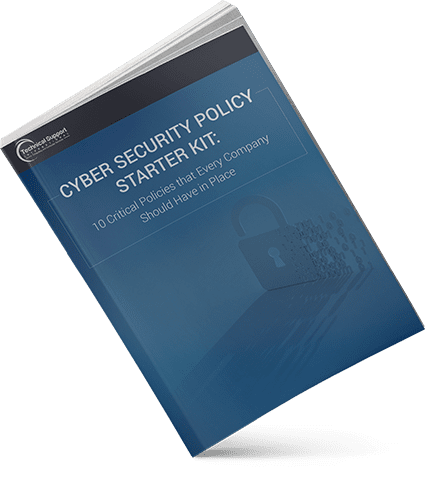Blog

Password Management Best Practices: The Importance of Strong Passwords
We all know strong passwords are the backbone to maintaining a secure network. With more of our private communications, banking, and health information being stored online, the security risk to our most personal data becomes an even greater danger. Creating a strong password is the first line of protection to your information; but how are we intended to remember the vast number phrases and special characters to gain access? More often than not, these high security password policies result in only locking ourselves out, thus complicating and defeating the purpose of accessibility…
Best Practice vs. Reality
The standard suggestion of changing our passwords every few months for our entire online presence is practically impossible. Most online users can have online bank accounts, multiple social media profiles, email, it’s hard to keep track of them all. Here are some tips to creating a strong password you can remember while still keeping your information protected:
Try to Avoid Using Words that are in the Dictionary
Why? Because many password-cracking tools come pre-loaded with dictionary lists that will attempt thousands of the most common names and words. Instead choose a favorite phrase or quote.
Add Special and Upper-Case Characters, Omit Silent Letters, and Make the Phrase Alphanumeric
This may seem really complicated at first but for good reason, the longer the phrase and more special characters added, the more difficult it is for a program to crack. For example, a fairly complicated but simple to remember password could be: Always Strong = @lw@ys$tr0ng!
Never use the Same Password you’ve created for your Email at any other Online Site
In the event that site gets hacked, there is a high probability your email will be next using those same credentials.
Don’t Store a File of your Passwords on your Computer or a Open File Share
The idea of hand-writing your passwords somewhere has mixed opinions. If you must, security experts advise extreme caution and to make sure you store them in a safe place. Not on a post-it attached to your monitor/under your keyboard. The most secure method would be to write your username and a password clue that has a personal meaning that only you can guess.
Use a Trusted Password Management Platform
Strong passwords are difficult to remember. A good tool to utilize is a reliable and trustworthy password management platform that can become the source for all your credentials. Anytime you create a new password, enter it on a password manager that will keep the information encrypted and safe. For business solutions, we recommend our TSI PassPortal that provides access to your credentials anywhere, anytime. Call for more information.
Remember Why Passwords Exist
The most important tip to remember when managing your passwords is recognizing their purpose, to protect your privacy and data. They are one piece of the security puzzle, it is critical that you also remain diligent in keeping your credentials protected. The easiest way to steal a password is by simply asking for it, so do not provide it to anyone, especially via phone or email. This is part of a much larger picture that involves keeping yourself informed on the newest security risks and theft tactics. TSI provides regular updates through Twitter, Facebook, LinkedIn, and our Blog. So be sure to follow us for all the latest!
Categories
- Backup & Disaster Recovery
- Business Operations
- Case Studies
- Cloud Services
- Cyber Security
- Employee Spotlight
- Finance & Budgeting
- Glossary Term
- Governance & IT Compliance
- Managed Services
- Mobile Device Management
- Network Infrastructure
- NIST 800-171 & CMMC 2.0
- PCI
- Podcast
- Project Management
- TSI
- Uncategorized
- vCIO
Cyber Security Policy Starter Kit:
10 Critical Policies That Every Company Should Have in Place


